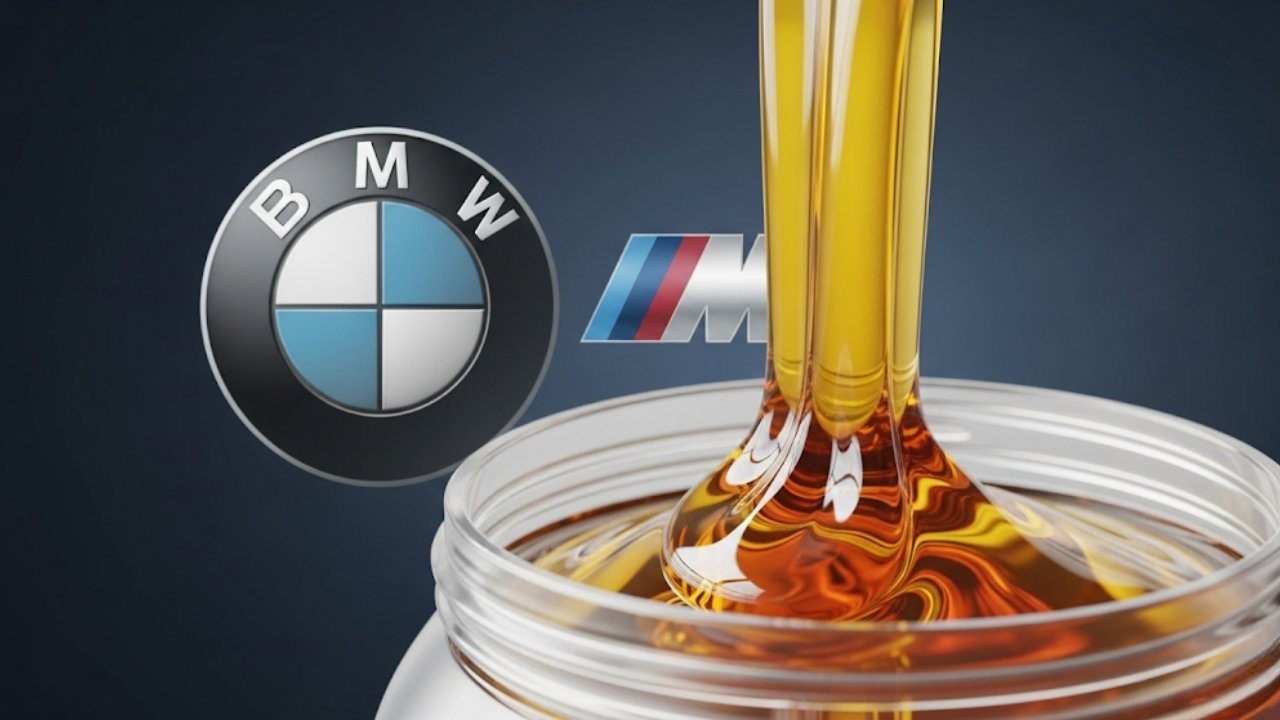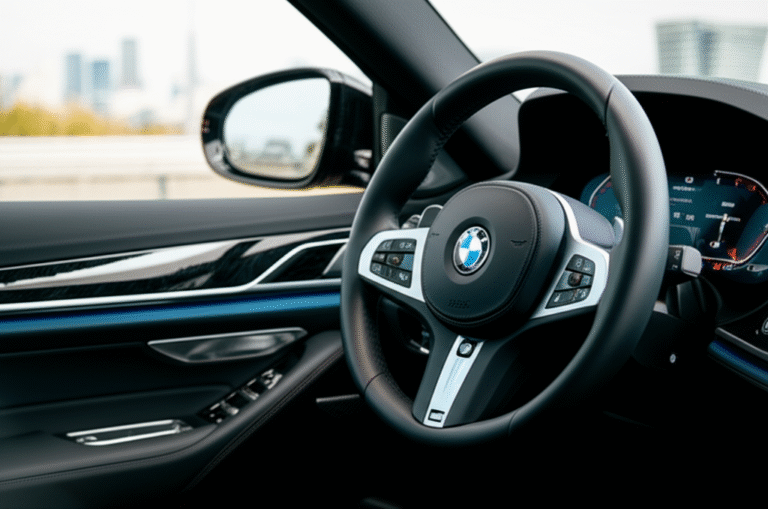The Ultimate Guide to BMW Car Engine Oil

Let’s be honest — owning a BMW feels amazing. There’s just something about that growl of the engine, the smooth glide around corners, and the subtle flex it gives when you roll up to a stoplight. But what most people don’t talk about enough is how much care a BMW engine really needs. Especially when it comes to the heart of the machine — the BMW car engine oil.
When I first bought my 3 Series, I was excited but also clueless about what kind of engine oil to use. I figured all oils were kind of the same. Big mistake. A few thousand kilometers later, I learned the hard way that BMWs are engineered differently. They’re like finely tuned athletes. And just like a pro runner can’t thrive on junk food, a BMW engine won’t perform its best with the wrong oil.
So, let me walk you through everything you need to know — no technical jargon, just real talk.
Why the Right BMW Car Engine Oil Matters

Here’s what good BMW car engine oil does:
-
Keeps internal engine parts from wearing out.
-
Prevents overheating by reducing friction.
-
Cleans out carbon and gunk build-up.
-
Extends engine life by reducing metal-to-metal contact.
-
Improves fuel efficiency and performance.
Now, if you use the wrong oil? You risk clogging vital parts, increasing engine noise, and eventually — you guessed it — expensive repairs. Trust me, BMW repairs aren’t cheap.
What Makes BMW Engine Oil Different?
BMW recommends a specific set of engine oil specifications that meet their internal quality standards. These oils go through rigorous tests to make sure they can handle high performance and long intervals.
Here’s a quick table comparing common oil specs:
| Oil Type | BMW Approval | Viscosity | Best For |
|---|---|---|---|
| BMW TwinPower Turbo 5W-30 | Yes (LL-01) | 5W-30 | Older BMWs (before 2015) |
| BMW TwinPower Turbo 0W-20 | Yes (LL-17 FE+) | 0W-20 | Newer BMWs (after 2017) |
| Castrol EDGE 5W-30 | Yes (LL-04) | 5W-30 | Diesel engines |
| Mobil 1 ESP Formula 5W-30 | Yes (LL-04) | 5W-30 | Emission-sensitive models |
The key spec to look for is BMW Longlife approval — either LL-01, LL-04, LL-12, or LL-17 depending on your model. These aren’t just numbers — they represent thousands of hours of testing under different heat, pressure, and load conditions.
️ Best BMW Car Engine Oil for Different Models
Here’s where it gets real. Not all BMWs use the same oil — your 2022 X5 and your buddy’s 2012 328i aren’t built the same. So let’s break it down:
For Older Models (Pre-2015)
You’ll usually need 5W-30 oil that meets LL-01 standards. Brands like BMW TwinPower Turbo, Castrol EDGE, and Liqui Moly work great.
For Newer Models (2017 and up)
BMW moved toward fuel efficiency. Most of these cars take 0W-20 or 0W-30, especially those with turbocharged engines. Look for LL-17 FE+ approved oils.
For Diesel BMWs
Diesel engines are a whole different beast. You’ll need low SAPS oils that meet LL-04 or LL-12 specs. Mobil 1 ESP and Shell Helix Ultra ECT are safe bets.
Pro tip: Always check your owner’s manual or the cap under the hood — it usually says the exact oil spec.
How Often Should You Change BMW Car Engine Oil?
Now here’s a hot topic: how often should you really change your oil?
BMW has these super convenient oil life indicators that tell you when it’s time. And while that’s handy, I wouldn’t rely on it alone — especially if you drive hard, live in a hot climate, or sit in traffic daily.
My recommendation?
-
Every 7,000 to 8,000 miles (11,000 – 13,000 km) if you’re using full synthetic oil.
-
Every 6 months, even if you don’t drive much.
-
After any major road trip or intense driving.
And please — don’t stretch it to 15,000 miles just because BMW says you can. Your engine might handle it, but your long-term maintenance costs won’t.
Best Brands of BMW Car Engine Oil
Here are some reliable brands that meet or exceed BMW’s requirements:
✅ BMW TwinPower Turbo
-
OEM-approved
-
Designed specifically for BMW engines
-
Excellent cold-start performance
✅ Castrol EDGE
-
Endorsed by BMW for many models
-
Strong thermal stability
-
Good for performance driving
✅ Mobil 1 ESP Formula
-
Excellent for diesel or emission-sensitive engines
-
Great protection against sludge and wear
✅ Liqui Moly
-
German-made, high-performance oil
-
Popular with European car enthusiasts
These aren’t just names — these are oils I’ve personally used or seen used by experienced mechanics. They’re also widely available and backed by proper testing.
Signs You’re Using the Wrong BMW Engine Oil
A friend of mine once used a generic 5W-20 from the gas station because it was “on sale.” A few weeks later? Check engine light. Rough idling. Even a slight burning smell. Turns out, the oil didn’t meet the BMW LL-01 spec, and the engine wasn’t happy.
Here are warning signs that your oil isn’t up to snuff:
-
Louder engine noise during startup or driving
-
Sluggish acceleration
-
Oil leaks due to breakdown in viscosity
-
Check Engine Light or oil warning light
-
Poor fuel economy
If you spot these symptoms, don’t ignore them. Get your oil checked or replaced with the proper BMW-approved oil ASAP.
Relatable Thought: Why BMWs Feel So High-Maintenance
Let’s be real — sometimes BMW ownership feels like dating someone who’s a little too fancy. They look amazing, they’re fun to show off, but they need constant attention. But here’s the thing — if you give them what they need, the relationship just works.
BMW car engine oil is one of those little things that make a huge difference. It’s not just about performance — it’s about respect. Your BMW was built to perform. Give it the oil it deserves.
How to Change BMW Car Engine Oil at Home (Yes, You Can!)
You don’t always need to run to a dealership or high-end service shop for an oil change. Changing your BMW car engine oil yourself is possible — and kind of rewarding. You get to bond with your car and save some cash.
Here’s a simple step-by-step guide:
What You’ll Need:
-
BMW-approved engine oil (usually 5–7 liters)
-
New oil filter (OEM or equivalent)
-
Oil drain pan
-
Socket wrench and filter wrench
-
Jack and stands (or ramps)
-
Funnel, gloves, rags
️ The Process:
-
Warm up your engine for a few minutes — warm oil flows better.
-
Safely lift the front of your car and secure it.
-
Place the oil pan under the drain plug and unscrew the plug with your wrench.
-
Let the oil drain completely — it can take 10–15 minutes.
-
Remove the old oil filter and replace it with a new one. Don’t forget to oil the new filter’s rubber gasket.
-
Replace the drain plug and tighten securely.
-
Pour in new oil using a funnel. Check your manual for the exact amount.
-
Start the engine, let it run for a minute, then turn it off.
-
Check the oil level with the dipstick and top up if needed.
It’s that easy. Just remember to recycle your old oil properly. Most auto parts stores take used oil for free.
❌ Common Myths About BMW Engine Oil
Let’s bust a few myths that I’ve heard way too many times — even from fellow BMW drivers:
❗ Myth 1: All Synthetic Oils Are Equal
Not true. Some synthetics don’t meet BMW Longlife standards. Always look for that LL-01, LL-04, or LL-17 certification.
❗ Myth 2: BMWs Don’t Need Oil Changes for 15,000 Miles
Yes, BMW says this — but that’s under ideal conditions. Most of us don’t drive on a racetrack or in perfect weather. Real-world rule? Change it sooner.
❗ Myth 3: You Can Use Any 5W-30 Oil
Nope. The viscosity may match, but the additive package is different. BMW car engine oil has additives specifically designed for high-revving engines.
❗ Myth 4: Dealer-Only Oil is the Best
BMW TwinPower Turbo oil is great, but it’s not the only option. Brands like Liqui Moly and Mobil 1 often perform just as well — sometimes better.
Choosing Between Full Synthetic vs Semi-Synthetic
You’ll often see both these terms thrown around. Here’s what they mean for your BMW car engine oil:
✅ Full Synthetic
-
Made from highly refined base oils
-
Offers superior protection, especially in extreme temps
-
Ideal for turbocharged and high-performance BMWs
⚠️ Semi-Synthetic
-
Mix of synthetic and conventional oil
-
Cheaper but less durable
-
Not usually recommended for BMWs
Bottom line: Always go full synthetic for BMW. Yes, it costs a bit more — but it saves your engine in the long run.
Quick Checklist: What to Remember About BMW Engine Oil
Here’s a handy list to keep in your glovebox or garage:
-
✅ Use BMW-approved full synthetic oil
-
✅ Match oil to your model year (check LL-01, LL-04, LL-12, or LL-17)
-
✅ Change oil every 7,000–8,000 miles
-
✅ Don’t mix brands or oil weights
-
✅ Replace oil filter every change
-
✅ Monitor for leaks, noise, or warning lights
-
✅ Keep a spare quart in your trunk for emergencies
❓ Frequently Asked Questions
Q1: What is the best oil for a BMW 3 Series?
For most 3 Series models, BMW TwinPower Turbo 5W-30 or Castrol EDGE 5W-30 with LL-01 approval is ideal. Always double-check your specific model year.
Q2: Can I use Mobil 1 oil in my BMW?
Yes — Mobil 1 ESP Formula 5W-30 is BMW-approved and works great, especially in newer and diesel models.
Q3: What happens if I go too long without changing oil in my BMW?
You risk engine sludge, poor performance, overheating, and eventual engine damage. Don’t wait for warning lights.
Q4: Can I mix different engine oil brands?
Avoid mixing if possible. Different oils have different additives. Mixing them may reduce their effectiveness.
Q5: Why does my BMW burn oil quickly?
BMW engines are high-compression and often burn a little oil naturally. But if it’s excessive, you may have leaks or valve issues.
Q6: What does LL-01 or LL-04 mean?
These are BMW Longlife certifications. They ensure the oil meets BMW’s testing standards for longevity, cleanliness, and thermal stability.
Q7: Do all BMWs use synthetic oil?
Yes. All modern BMWs require full synthetic engine oil to meet performance and efficiency standards.
Q8: Is it safe to change BMW engine oil at home?
Absolutely, as long as you follow safety protocols and use the right tools and approved oil.
Final Thoughts: Respect the Machine
A BMW isn’t just a car. It’s an experience. But every experience requires maintenance — and for your BMW, that starts with the right engine oil. Skipping this is like feeding fast food to a world-class athlete. It might survive, but it won’t thrive.
So take a few extra minutes. Read your manual. Choose the correct BMW car engine oil. Change it on time. Your engine will thank you with smooth acceleration, quieter idling, and fewer surprise visits to the mechanic.
From one BMW owner to another — treat your car like royalty, and it’ll return the favor on every drive.




